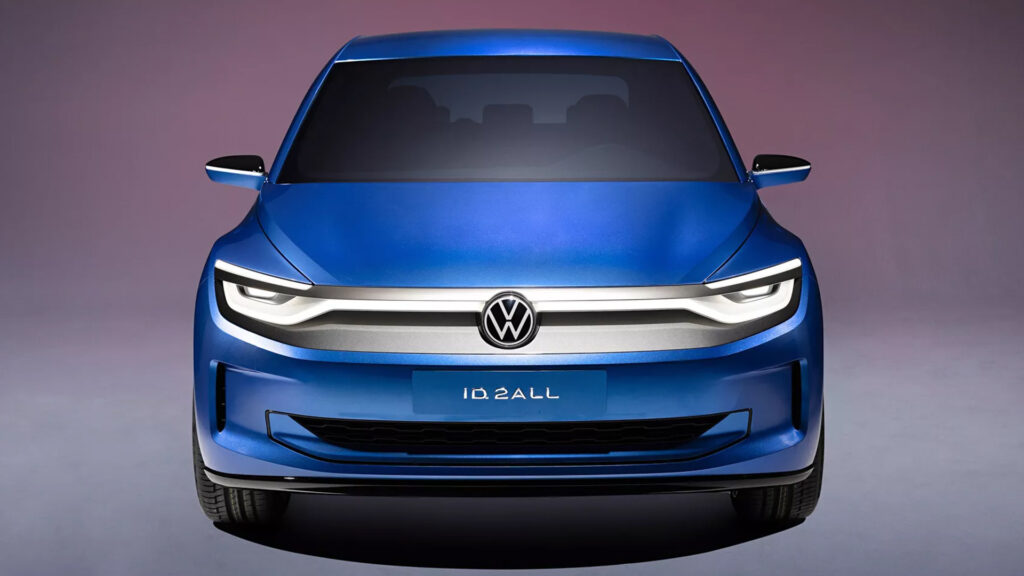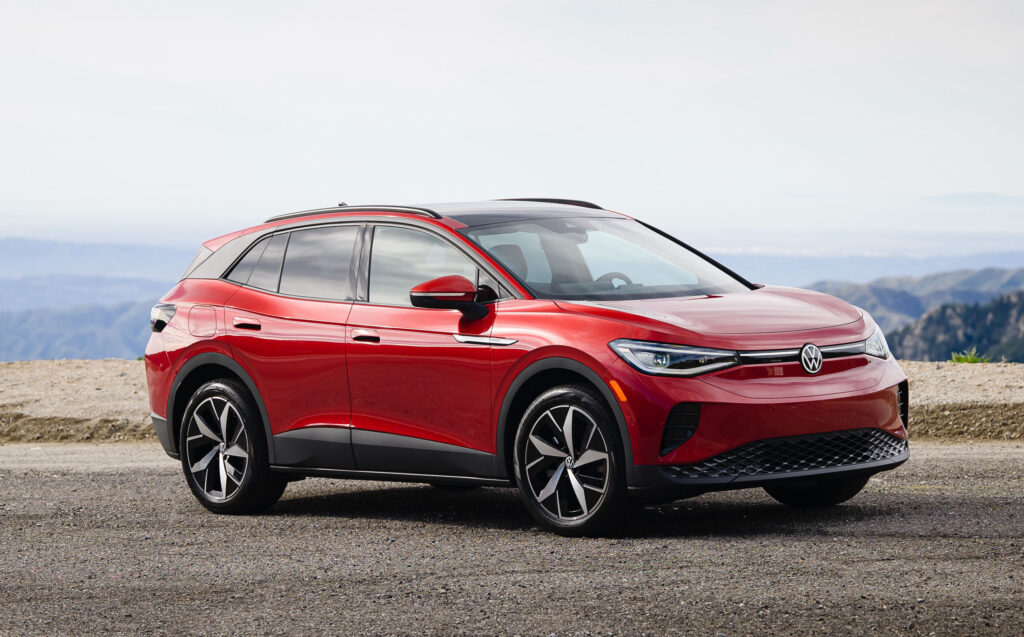- The long-awaited ID.2 won’t launch until 2026, which can’t come soon enough for VW.
- Also launching in 2026 will be the first of two new EVs co-developed with Xpeng in China.
- Analysts warn VW faces an uphill battle trying to sell “old technology to new customers.”
It’s been over four years since Volkswagen rolled out its all-electric ID.3 and ID.4. At the time of their arrival, many had thought these two vehicles could give Tesla a serious run for their money. However, things haven’t panned out that way, and 2025 is shaping up to be another difficult year for VW EVs.
Much like 2024, the German brand will not launch a single new EV this year. In fact, the most recent addition to its electric lineup was the ID.7 sedan, which debuted in Q3 2023. Looking ahead, VW’s next significant release—the long-awaited ID.2—isn’t set to hit select markets before 2026, and North America is unlikely to be one of them. Priced under €25,000 (~$26,000), the ID.2 is expected to offer interior space comparable to a Golf while remaining as compact and affordable as the smaller Polo.
Read: Range Anxiety, You Say? VW ID.7 Does 585 Miles On A Single Charge
“For the next year or so, VW is forced to sell old technology to new customers,” German-based automotive analyst Matthias Schmidt told Bloomberg. “That’s going to be difficult.”
And difficult it has been. Across key markets, including the USA, Europe, and China, VW is facing EV sales headwinds. In Europe, slashed subsidies in critical regions like Germany have dampened demand. Meanwhile, in China, a market that’s essential to VW’s long-term EV ambitions, the automaker is losing ground to nimble local competitors. Even luxury offerings like the Audi Q8 e-tron and Porsche Taycan are failing to gain traction in a market increasingly dominated by more affordable, mass-market EVs from Chinese brands.
Betting Big on China
A key part of VW’s push to crack into China’s EV market is its new partnership with Xpeng. The two companies are working on a joint electrical and electronic (E&E) architecture that will underpin all EVs produced by VW in China. The first models launched through the partnership should launch in 2026 and will include two mid-range VWs, one of which will be an SUV. The VW Group hopes to grow annual Chinese sales from 2.93 million last year to 4 million by 2030.

“The introduction of new models is one solution, but it is just as important to maintain our broad portfolio,” VW spokesperson Stefan Voswinkel added. “We have worked hard over the past few years and have really good models with high-performance software and high quality.”
While these models may help VW in China, they won’t be sold elsewhere. In the US, the VW Group is working towards the arrival of the Scout Terra and Traveler. However, both models will be sold exclusively through a direct-sales model, bypassing traditional VW dealerships, a decision that’s already sparked intense backlash from dealers in California. Despite the controversy, the electric pickup and SUV have strong potential to resonate with American buyers. That said, don’t get too excited just yet, as production isn’t slated to begin until 2027.




